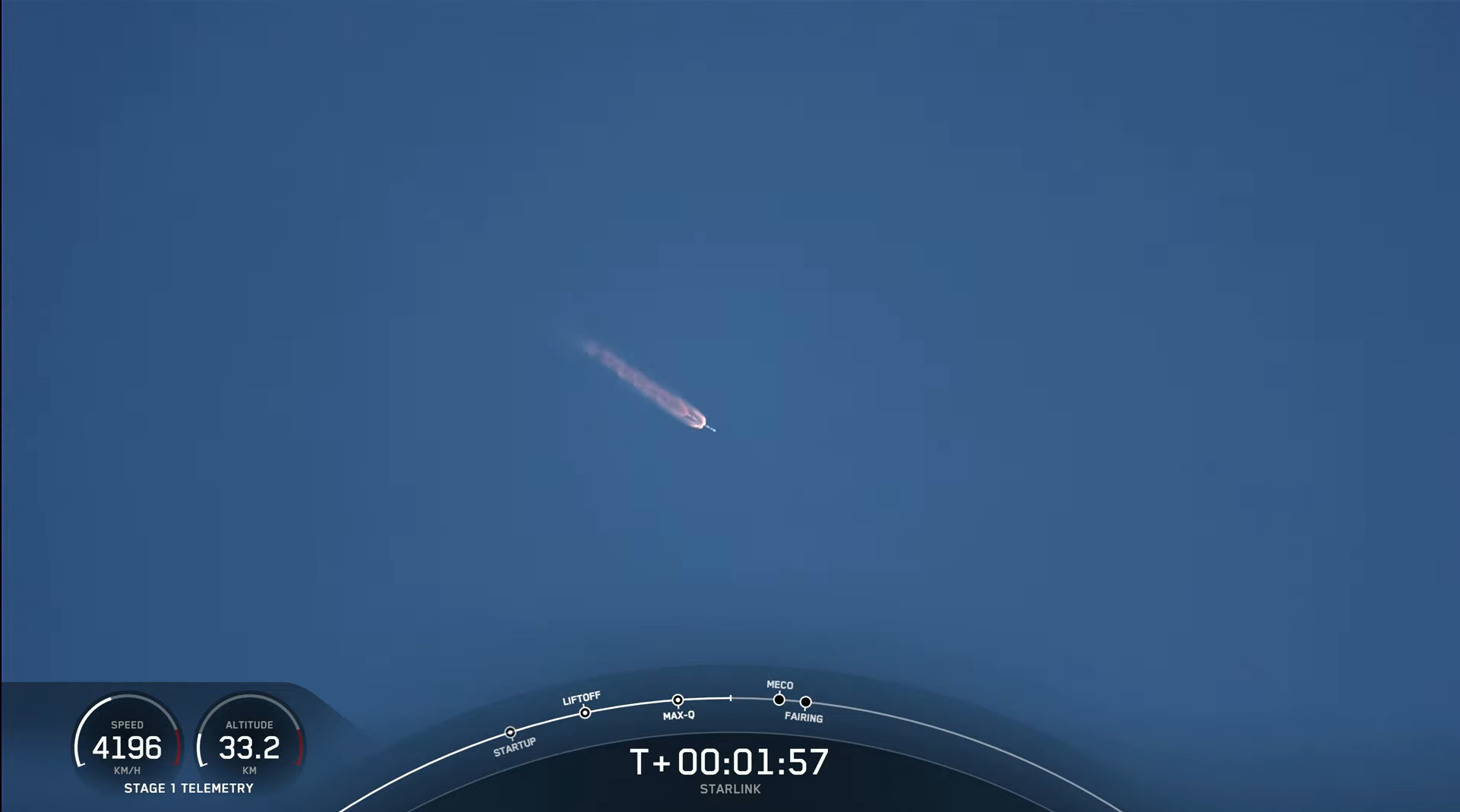SpaceX launches 47 Starlink satellites and lands rocket making 11th flight
SpaceX launched 47 satellites and landed the returning rocket on Thursday morning (March 3).
A two-stage Falcon 9 rocket carrying 47 Starlink internet satellites launched from Kennedy Space Center in Florida Thursday at 9:35 a.m. EST (1435 GMT). About nine minutes later, the Falcon 9's upper stage came back to Earth for a vertical landing on the SpaceX droneship Just Read the Instructions, which was stationed in the Atlantic Ocean a few hundred miles off the Florida coast.
The successful landing was the 11th for the booster, tying a SpaceX rocket reuse record.
Related: SpaceX's Starlink satellite megaconstellation launches in photos
The booster previously launched the GPS III SV03 mission in June 2020, Turksat 5A in January 2021, Transporter 2 in June 2021 and seven other Starlink batches, SpaceX representatives said.
Such extensive reflight is a priority for SpaceX and its founder and CEO, Elon Musk, who has often said that full and rapid reuse of space hardware is the key breakthrough needed to help humanity colonize Mars and achieve other ambitious exploration goals.
Starlink is SpaceX's satellite internet service, the first infrastructure for which launched in 2019. The network recently made headlines when CEO Elon Musk sent 50 Starlink terminals to Ukraine, where a Russian invasion has been interfering with internet access.
Breaking space news, the latest updates on rocket launches, skywatching events and more!
"Now, you may have heard that Starlink has been activated in Ukraine to help with the internet access in that country," Siva Bharadvaj, SpaceX space operations engineer, said during the launch broadcast.
"A few days ago, the Ukrainian government confirmed that the Starlink kits had arrived," Bharadvaj said. "We're told that they're already in use. We couldn't be more proud of all the teams that jumped in to make this effort happen, along with many individuals luckily was supported. Thank you, and we hope it helps."
Thursday's launch was the sixth Starlink mission of the year already for SpaceX. All of the launches were successful, but the third mission, which lifted off on Feb. 3, ended up being waylaid by a solar storm. That sun outburst spawned a geomagnetic storm here on Earth, which increased the density of our atmosphere enough to bring down up to 40 of the 49 Starlink satellites, which had not yet climbed to their operational altitude, SpaceX representatives said.
There will be many more Starlink launches in the weeks and months to come. The company has already delivered more than 2,000 Starlink spacecraft to low Earth orbit, but it has permission to launch 12,000 satellites and has applied to an international regulator for approval to loft up to 30,000 more.
Mike Wall is the author of "Out There" (Grand Central Publishing, 2018; illustrated by Karl Tate), a book about the search for alien life. Follow him on Twitter @michaeldwall. Follow us on Twitter @Spacedotcom or on Facebook.

Michael Wall is a Senior Space Writer with Space.com and joined the team in 2010. He primarily covers exoplanets, spaceflight and military space, but has been known to dabble in the space art beat. His book about the search for alien life, "Out There," was published on Nov. 13, 2018. Before becoming a science writer, Michael worked as a herpetologist and wildlife biologist. He has a Ph.D. in evolutionary biology from the University of Sydney, Australia, a bachelor's degree from the University of Arizona, and a graduate certificate in science writing from the University of California, Santa Cruz. To find out what his latest project is, you can follow Michael on Twitter.


